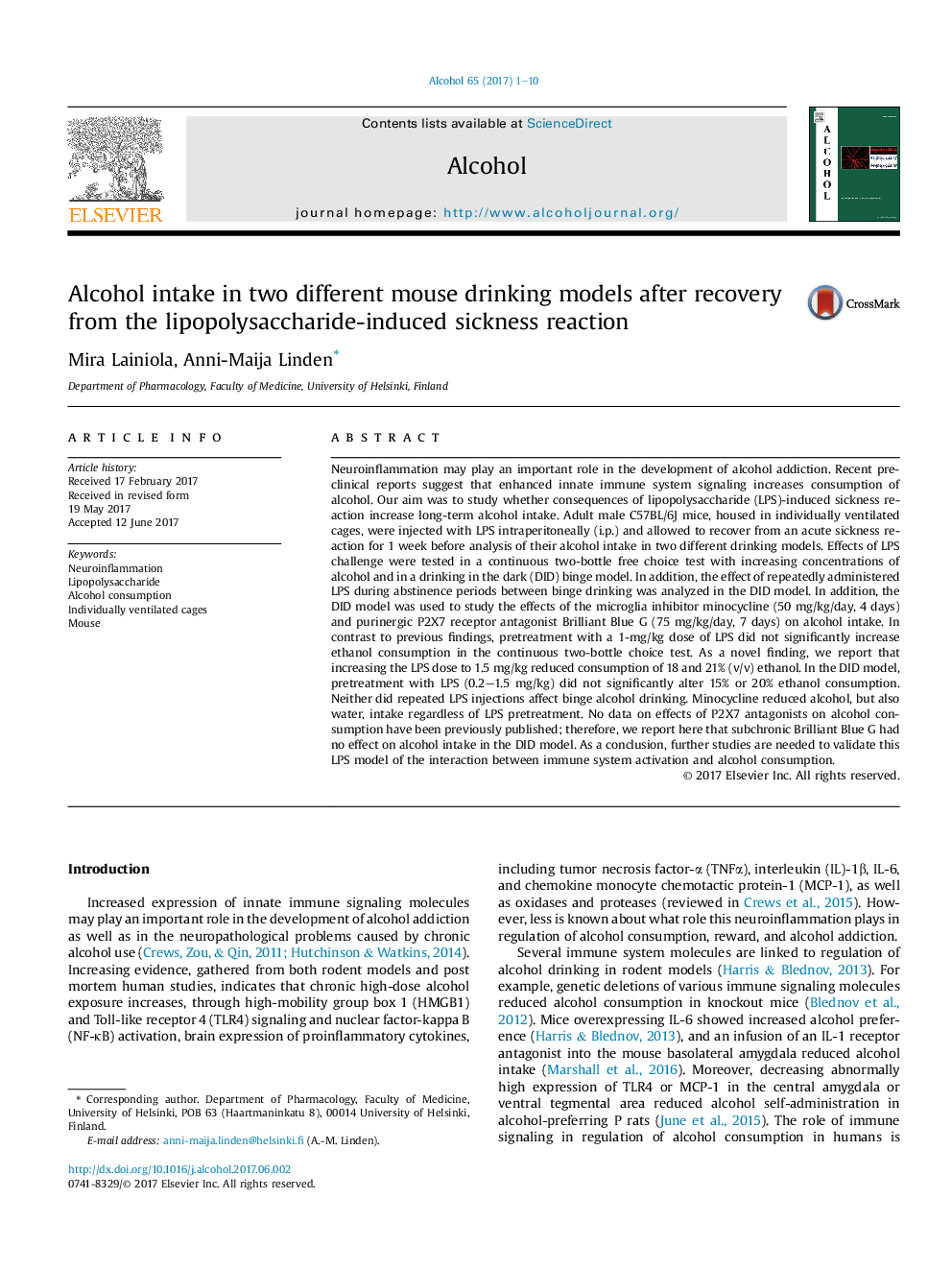| Article ID | Journal | Published Year | Pages | File Type |
|---|---|---|---|---|
| 5119543 | Alcohol | 2017 | 10 Pages |
â¢Effect of LPS-induced inflammation on mouse alcohol drinking was tested.â¢LPS (1.5 mg/kg) pretreatment reduced alcohol intake in a continuous two-bottle choice test.â¢Pretreatment or repeated LPS did not affect alcohol intake in the binge model.â¢Minocycline reduced alcohol but also water intake in the binge drinking model.â¢Brilliant Blue G had no effect on alcohol intake in the binge model.
Neuroinflammation may play an important role in the development of alcohol addiction. Recent preclinical reports suggest that enhanced innate immune system signaling increases consumption of alcohol. Our aim was to study whether consequences of lipopolysaccharide (LPS)-induced sickness reaction increase long-term alcohol intake. Adult male C57BL/6J mice, housed in individually ventilated cages, were injected with LPS intraperitoneally (i.p.) and allowed to recover from an acute sickness reaction for 1 week before analysis of their alcohol intake in two different drinking models. Effects of LPS challenge were tested in a continuous two-bottle free choice test with increasing concentrations of alcohol and in a drinking in the dark (DID) binge model. In addition, the effect of repeatedly administered LPS during abstinence periods between binge drinking was analyzed in the DID model. In addition, the DID model was used to study the effects of the microglia inhibitor minocycline (50Â mg/kg/day, 4 days) and purinergic P2X7 receptor antagonist Brilliant Blue G (75Â mg/kg/day, 7 days) on alcohol intake. In contrast to previous findings, pretreatment with a 1-mg/kg dose of LPS did not significantly increase ethanol consumption in the continuous two-bottle choice test. As a novel finding, we report that increasing the LPS dose to 1.5Â mg/kg reduced consumption of 18 and 21% (v/v) ethanol. In the DID model, pretreatment with LPS (0.2-1.5Â mg/kg) did not significantly alter 15% or 20% ethanol consumption. Neither did repeated LPS injections affect binge alcohol drinking. Minocycline reduced alcohol, but also water, intake regardless of LPS pretreatment. No data on effects of P2X7 antagonists on alcohol consumption have been previously published; therefore, we report here that subchronic Brilliant Blue G had no effect on alcohol intake in the DID model. As a conclusion, further studies are needed to validate this LPS model of the interaction between immune system activation and alcohol consumption.
